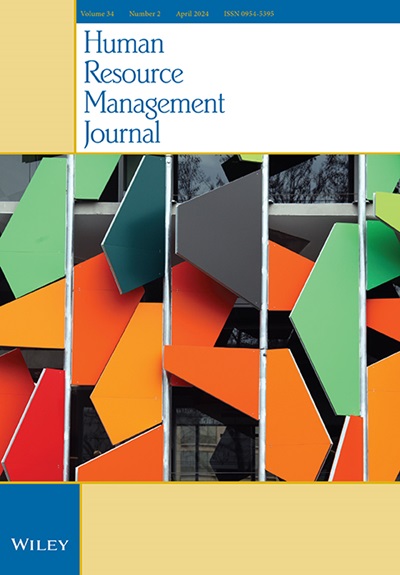Support for Sustainable Development Goal 5 and Social Performance: The Role of Diversity Targets, Work-Life Balance Practices, and Female Representation
Abstract
Human resource management (HRM) scholarship has neither fully engaged with the United Nation's sustainable development goal 5 (SDG 5—gender equality) nor deepened knowledge of the human resource practices that most likely contribute to the implementation of this goal. We address this gap by investigating the link between SDG 5 and multinational enterprises' (MNEs) social performance. We posit that attention to SDG 5 will facilitate MNEs' capacity to formulate and implement practices to increase gender equality in work settings. Drawing from the sustainable HRM framework and social role theory, we develop three hypotheses related to the role of diversity targets and work-life balance practices as mediators of the relationship between support for SDG 5 and MNEs' social performance. We also posit that women's representation across the organizational structure strengthens the relationship between support for SDG 5 and diversity targets as well as work-life balance practices. We tested these relationships with 418 MNEs in the S&P 500. We found that diversity targets and work-life balance practices (i.e., flexible arrangements and daycare services) mediate the relationship between support for SDG 5 and social performance. In addition, the interaction between women's representation and support for SDG 5 enhances diversity targets and flexible arrangements. We theoretically contribute to the sustainable HRM literature by (a) revealing the reasons for a spillover effect of support for gender equality to other demographic groups; (b) explaining broader societal impacts of support for SDG 5 on the workforce, community, human rights, and product responsibility. To successfully integrate SDG 5, MNEs must weave diversity targets and work-life balance practices into strategic planning.

 求助内容:
求助内容: 应助结果提醒方式:
应助结果提醒方式:


